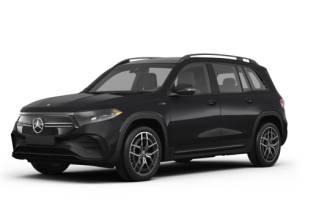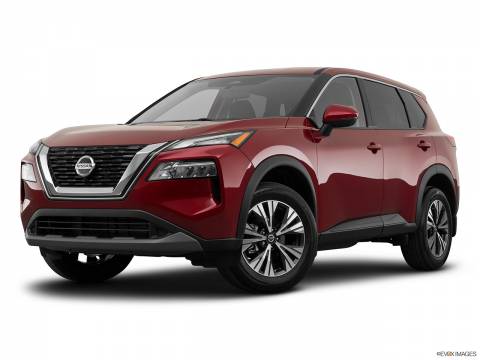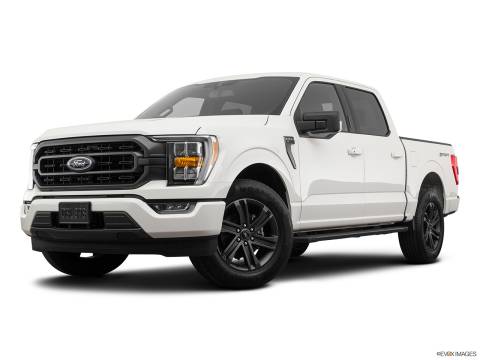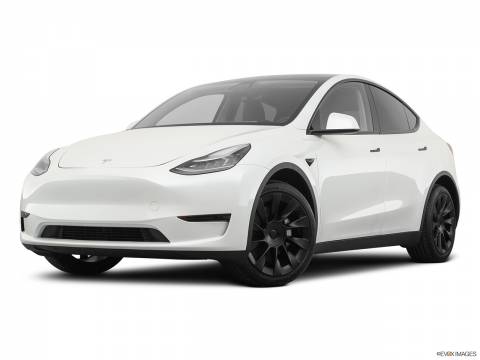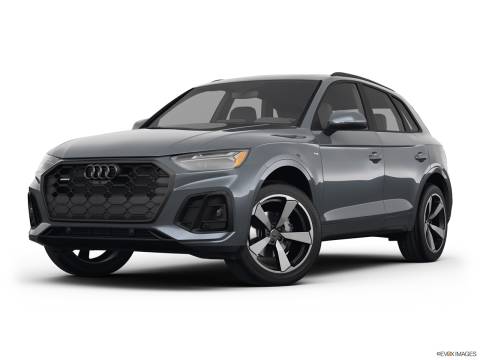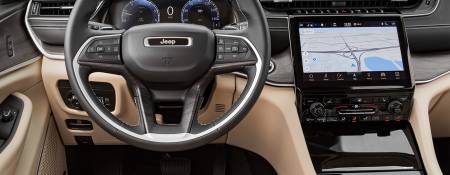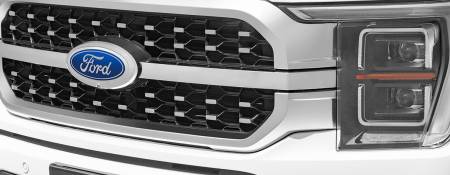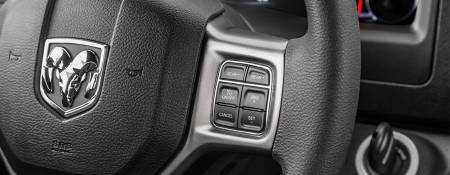Buying or leasing a new car in Canada is a significant financial decision that requires careful consideration. To make sure you choose the right vehicle and avoid any potential pitfalls, it's essential to ask yourself a series of questions before making your decision. I focused the questions around one key differentiation: if I'm a high, mid, or low income earner.
So, here are 8 questions I should consider before buying or leasing a new car in Canada:
What is my budget?
Determining a budget before searching for a vehicle is crucial. This budget should include the initial cost and ongoing expenses such as fuel, insurance, and maintenance. For example, as a high-income earner, I may consider purchasing a luxury SUV like the Audi Q5 (MSRP: CAD $49,200), while as a mid-income earner, I may opt for a more affordable sedan like the Honda Accord (MSRP: CAD $28,500). As a low-wage earner, I might consider a used compact car like the Toyota Corolla (MSRP: CAD $19,350) to save on costs.
Sample Financing Table for 48 Months at 4.9% Interest Rate:
| Model | MSRP (CAD) | Down Payment (CAD) | Loan Amount (CAD) | Monthly Payment (CAD) |
|---|---|---|---|---|
| Audi Q5 | 49,200 | 9,840 (20%) | 39,360 | 896.81 |
| Honda Accord | 28,500 | 5,700 (20%) | 22,800 | 519.11 |
| Toyota Corolla | 19,350 | 3,870 (20%) | 15,480 | 352.56 |
Please note that the down payment used in this table is 20% of the MSRP. The actual down payment may vary based on personal preferences and financial situation.
Should I buy or lease?
I need to consider the pros and cons of buying and leasing. Leasing often has lower monthly payments but may not be the best option for long-term ownership. For instance, as a high-income earner, I may prefer leasing a luxury sedan like the Mercedes-Benz E-Class (MSRP: CAD $70,900) to enjoy the latest features without worrying about depreciation. However, as a mid-income earner, I may decide to buy a reliable car like the Subaru Legacy (MSRP: CAD $26,395) to minimize long-term expenses.
How much can I afford to finance?
I need to determine how much I can afford to borrow and what my monthly payments will be. For example, as a high-income earner, I may comfortably finance a luxury vehicle like the BMW 5 Series (MSRP: CAD $62,500) over a shorter term, while as a low-wage earner, I might need a longer term and lower monthly payments for a more affordable car like the Kia Forte (MSRP: CAD $17,895).
Table: Financing the Kia Forte (MSRP: CAD $17,895) for 60 Months at Different Interest Rates
| Interest Rate (%) | Monthly Payment (CAD) | Total Interest Paid (CAD) |
|---|---|---|
| 5 | 339.40 | 3,473.97 |
| 7 | 354.67 | 4,380.20 |
| 9 | 370.27 | 5,316.20 |
| 12 | 399.96 | 6,997.60 |
| 14 | 416.68 | 8,101.80 |
Please note that this table is for illustrative purposes and the actual monthly payments and interest paid may vary based on personal preferences, financial situation, and lender rates.
What are the interest rates?
Comparing interest rates from various lenders can help me find the best deal. As a mid-income earner, I might secure a lower interest rate by shopping around and negotiating with multiple lenders.
How much is the down payment?
I need to determine how much I can afford to put down on the vehicle to reduce my monthly payments. As a high-income earner, I might put down a larger down payment on a luxury vehicle like the Lexus RX (MSRP: CAD $57,500), while as a low-wage earner, I could benefit from a smaller down payment and manageable monthly payments on a vehicle like the Nissan Versa (MSRP: CAD $16,498).
Table: Financing the Nissan Versa for 60 Months at 5% Interest Rate with Different Down Payments
| Down Payment (%) | Down Payment (CAD) | Loan Amount (CAD) | Monthly Payment (CAD) |
|---|---|---|---|
| 0 | 0 | 16,498 | 312.34 |
| 5 | 824.90 | 15,673.10 | 296.74 |
| 10 | 1,649.80 | 14,848.20 | 281.14 |
| 20 | 3,299.60 | 13,198.40 | 249.94 |
Please note that this table is for illustrative purposes and the actual down payment, loan amount, and monthly payments may vary based on personal preferences and financial situation.
What type of car do I need?
I should consider my lifestyle, daily activities, and personal preferences when choosing a vehicle type. As a high-income earner, I might need an SUV like the Range Rover Sport (MSRP: CAD $81,000) for outdoor activities, while as a mid-income earner, I might prefer a fuel-efficient sedan like the Toyota Camry (MSRP: CAD $27,250) for daily commuting.
The top 4 most popular car types in Canada are:
-
Compact Cars: Compact cars are popular among Canadians due to their affordability, fuel efficiency, and practicality for city driving. Examples include the Honda Civic (MSRP: CAD $24,465) and Toyota Corolla (MSRP: CAD $19,350).
-
Sedans: Sedans provide a good balance of comfort, performance, and fuel efficiency, making them a popular choice for families and daily commuters. Examples include the Toyota Camry (MSRP: CAD $27,250) and Honda Accord (MSRP: CAD $28,500).
-
SUVs: Sport utility vehicles (SUVs) are popular in Canada for their versatility, spacious interiors, and capability in various weather conditions. Examples include the Honda CR-V (MSRP: CAD $30,805) and Ford Escape (MSRP: CAD $28,799).
-
Pickup Trucks: Pickup trucks are favored for their utility, towing capacity, and ruggedness, especially in rural areas or for those with outdoor hobbies. Examples include the Ford F-150 (MSRP: CAD $34,979) and Chevrolet Silverado (MSRP: CAD $33,948).
What features are important to me?
I need to list the features I need or desire in a vehicle, such as fuel efficiency, safety ratings, and technology. For example, as a mid-income earner with a growing family, I might prioritize safety features and ample cargo space in a vehicle like the Honda CR-V (MSRP: CAD $30,805).
Some of the most liked features among Canadians include:
-
Heated seats and steering wheel: Due to the cold Canadian winters, heated seats and steering wheels are popular features that provide added comfort during frigid temperatures.
-
All-wheel drive (AWD): AWD systems provide better traction and handling in snowy or icy conditions, which is particularly important for Canadian drivers who experience harsh winters.
-
Fuel efficiency: With fluctuating gas prices, Canadians appreciate fuel-efficient vehicles that can help save on fuel costs, especially for those with long commutes or frequent road trips.
Considering these popular features when selecting a new or leased vehicle in Canada can help me choose a car that best suits my needs and preferences.
What are the maintenance and repair costs?
I need to investigate the reliability of the car by checking reviews and reports from sources such as Consumer Reports or J.D. Power. As a mid-income earner, I might prioritize a reliable vehicle like the Hyundai Sonata (MSRP: CAD $27,149) to minimize repair costs and downtime.
When considering maintenance costs, I should focus on several major areas, such as:
-
Routine maintenance: This includes oil changes, tire rotations, and brake pad replacements. For example, a vehicle like the Toyota Corolla (MSRP: CAD $19,350) might have lower routine maintenance costs due to its long intervals between oil changes and affordable replacement parts.
-
Tires: Replacing and maintaining tires can be a significant expense. A vehicle with high-performance tires, like a sports car, may require more frequent tire replacements and have higher costs than a family sedan with all-season tires.
-
Timing belt or chain replacement: Some vehicles have timing belts that need to be replaced at specific intervals, while others use a timing chain that generally lasts longer. For instance, a vehicle like the Honda Accord (MSRP: CAD $28,500) uses a timing chain, which can save on maintenance costs compared to a car with a timing belt.
-
Transmission maintenance: The type of transmission (manual or automatic) and the vehicle's specific requirements can influence maintenance costs. For example, a vehicle with a continuously variable transmission (CVT) like the Nissan Versa (MSRP: CAD $16,498) might require less frequent maintenance than a car with a traditional automatic transmission.
-
Battery replacement: Hybrid and electric vehicles require battery replacements, which can be costly. A vehicle like the Chevrolet Bolt (MSRP: CAD $45,998) may have a higher upfront cost, but its battery replacement costs should be factored into the overall maintenance expenses.
Well, there you have it! These 8 questions should help you navigate the process of buying a new car in Canada. Remember, it's essential to take your time and carefully consider your options. Don't be afraid to ask questions, negotiate, and do your research. After all, a car is a significant investment, and you want to make sure you're making the best decision for your lifestyle and budget.
Good luck, and happy car hunting!





